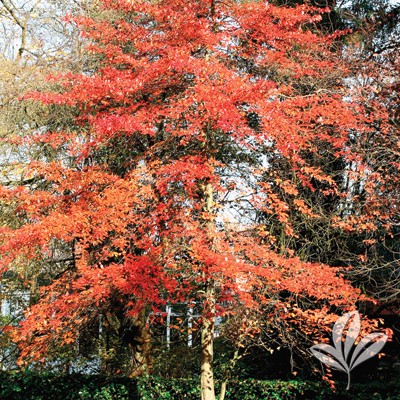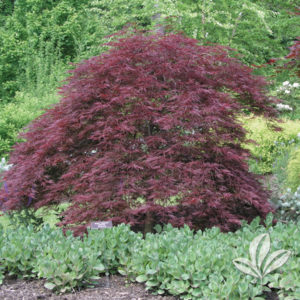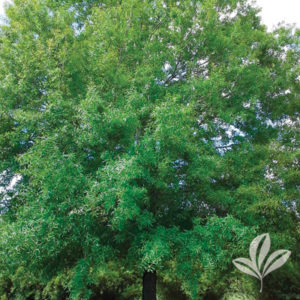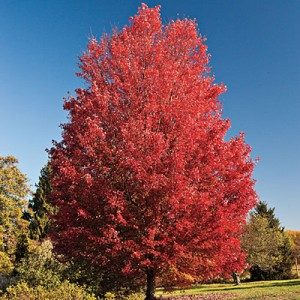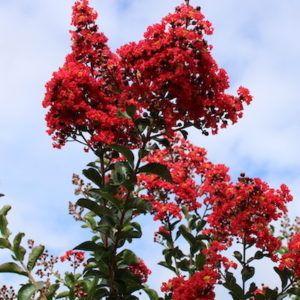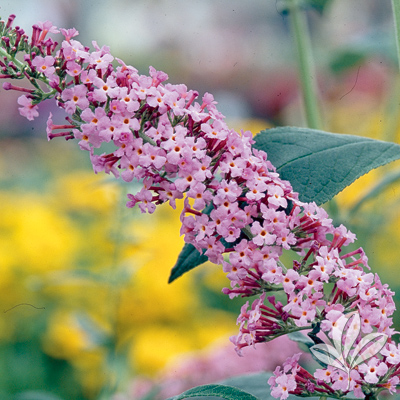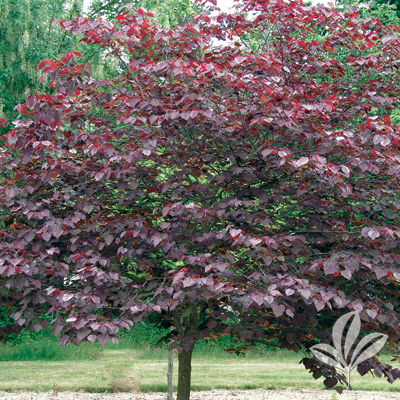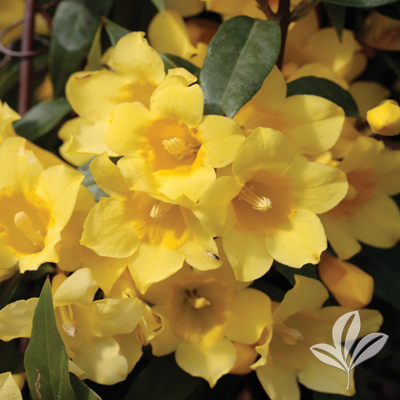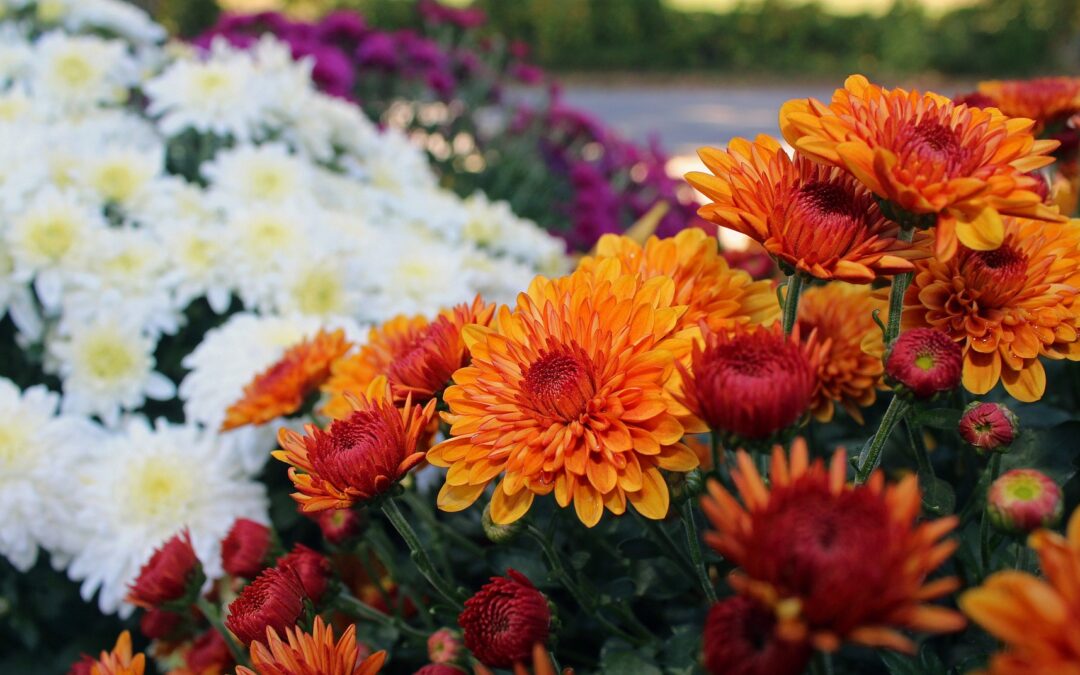Details
Black Gum tree goes by many names including sour gum, bowl gum, yellow gum, stinkwood, tupelo gum, and pepperidge. Whatever you call it, it’s a fall favorite for its unbelievable leaf color. During the summer, Black Gum leaves are a dark green with a high gloss, turning to shades of yellow, orange, bright red, purple, and scarlet in the fall. And as beautiful as this tree is, it also serves a valuable function for countless wildlife, favored by fall songbirds, treefrogs, bats, foxes, racoons, and more. And if you’ve ever enjoyed tupelo honey, you can thank a Black Gum tree! The spring flowers are small but mighty, attracting bees and making the Black Gum tree one of the best-producing honey trees in the world.
Features & Benefits
- Stunning fall leaf colors
- Small white spring flowers
- Bluish-black fruit in September to early October, food for birds and small mammals
- Interesting textural bark as the tree ages
- Large size is ideal for creating shade and focal points in the landscape
- Attracts wildlife and birds as well as nutrition for bees in early to late spring
- Resistant to fire, heat, salt, wet soil, and drought
Care & Space
- Full sun to partial shade
- Plant Height: 30–50’
- Plant Width: 20–30’
- Prefers moist, well-drained, acidic soil but will tolerate some drought and wet conditions
- Because the long taproot makes it difficult to transplant, this tree should be planted in its
permanent location - Growth habit: Lovely oval shape with bark that furrows with age, resembling alligator hide
- USDA Zones 4–9
